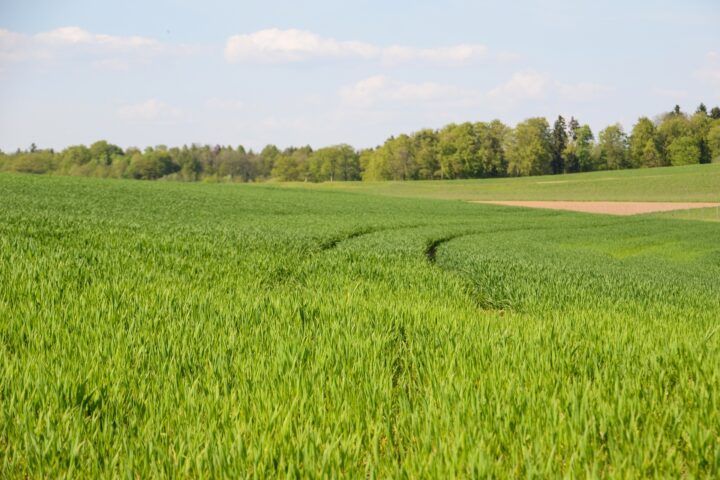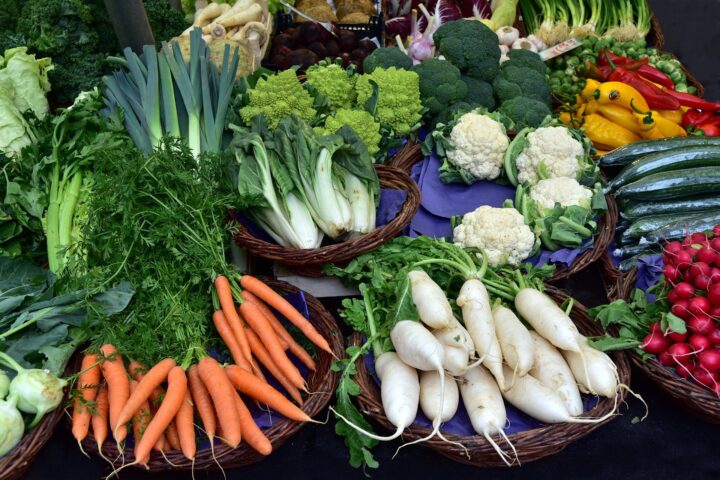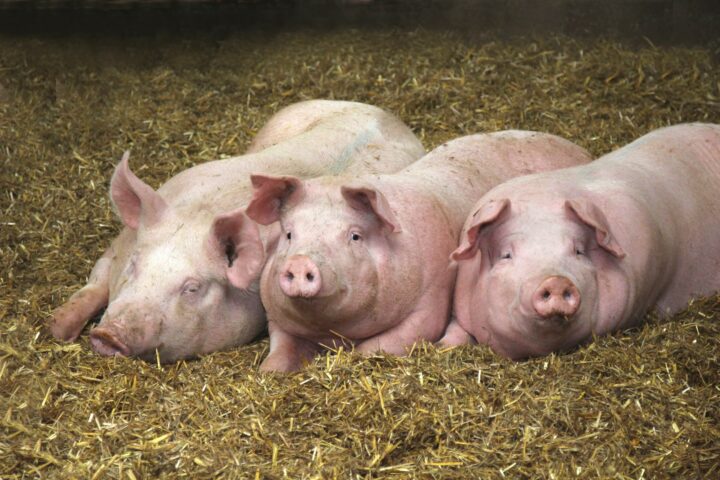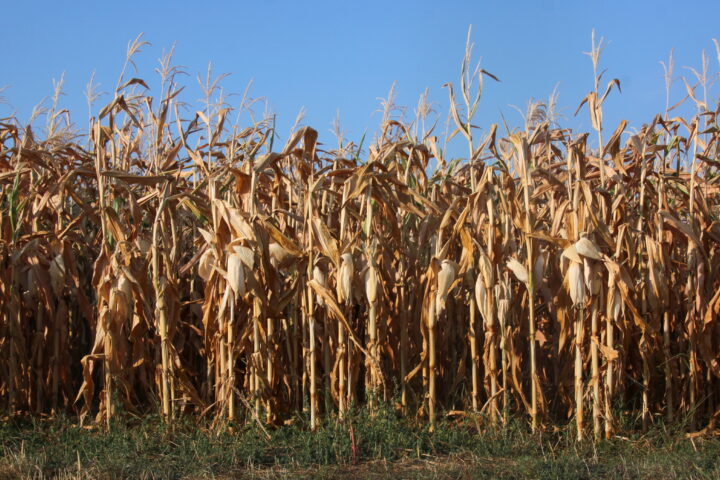
New breeding methods – here to stay
The Swiss Parliament has decided to update the genetic engineering moratorium that has been in place since 2005. The step was overdue. On the occasion of a webinar organized by swiss-food.ch, experts from science and agriculture spoke about the benefits of new biotechnological breeding methods. It became clear: the risks are low, the opportunities are great.
Friday, March 4, 2022
It is often said that genome editing is not natural. “But what does the term “natural” mean in this context?” asks Detlef Weigel, Director of the Molecular Biology Department at the Max Planck Institute for Biology in Tübingen. In reality, the distinction between "natural" and "artificial" plants is an almost illusory matter. For example, corn as we know it today evolved from the wild grass "Teosinte". This wild grass originally had far fewer kernels than the corn cobs we know today. Today's agricultural crops no longer bear much resemblance to the original plants. They have emerged from a breeding process during centuries of by humans.
The basis for this are mutations in the genes of the plants, which were selected consciously or unconsciously. Even plants that look almost the same differ in countless genes. "Mutants are everywhere," says Weigel. In every grain of wheat there are around 200 random mutations per generation. In a wheat field the size of one hectare, around 40 billion mutations occur per harvest. No plant is like the other. They're all mutants. With genome editing, mutations that happen randomly in nature can be brought about precisely: "A mutation is a mutation," says Weigel. It doesn't matter whether it was brought about by the gene scissors or whether it came about by chance.
Healthy plants, less pesticides
The researcher Theresa Koller from the University of Zurich is dealing with the question of how plants can defend themselves against diseases. Plants have disease resistance genes that produce specific proteins to fight disease. Researchers are trying to identify such disease resistance genes, which can then be added to a crop using new breeding methods. One example from Koller's research is corn, which is equipped with a resistance gene to fungal diseases. The primary goal is a healthy plant. But with disease resistance, pesticides can also be saved. Koller knows that green biotechnology triggers fears in some people. But the researcher emphasizes that the cultivation of the plants does not pose any danger to humans or the environment. "The risks tend towards zero, the chances are great," says Koller.
In view of scientific progress and the knowledge gained as a result, the genetic engineering moratorium can no longer be justified. Much more is known today about the genome of crop plants than 20 years ago. The genome of most crops has been decoded. The decryption methods are constantly becoming cheaper, faster and more precise. With the CRISPR/Cas9 gene scissors, a much more precise method for modifying the genome of plants was also developed. And also the experience of growing such plants has increased around the world. We now know that the cultivation of genetically modified plants poses no danger to humans or the environment. The researcher explains that genome editing is much more targeted than conventional breeding methods, which rely on chemicals or radioactive irradiation of plants (random mutagenesis). It therefore makes sense to regulate genome editing in the same way as mutagenesis, which is legally permitted and also used in organic farming. A simplification of the approval process for new breeds would also allow small start-ups and SMEs to breed with these new methods in the future. In contrast to the genetic engineering of the past, today even an individual can change a variety with the new methods.
Opportunities for practice
Plant breeder and fruit producer Beat Lehner bridges the gap between theory and practice. According to Lehner, breeding is becoming increasingly important. The pressure on crop protection products will remain high. Many funds are withdrawn from the market. Cultivation conditions are becoming more difficult as a result of climate change: "In the future we will need all the building blocks to produce fruit," he says. But the breeding of a new fruit variety takes years to decades. The first fire blight-resistant apple varieties, which were bred because of the severe damage in 2007, are only now coming onto the market - ie 15 years later. The pace at which new and disease-resistant varieties can be brought to market is increasing with genome editing. However, it does not represent the end of classic breeding methods. "But we can react faster and more specifically," says Lehner. It is also very important for the breeder that established standard varieties can be “perfected”. Resistant varieties also lead to fewer rotten fruits and less food waste.
Lehner sees concrete applications in the optimization of known varieties. Fruits are marketed as cultivars. Customers get used to certain varieties and mainly buy what they are familiar with. Lehner hopes that with genome editing, varieties that are already on the market can be improved and, for example, given tolerances to apple scab and powdery mildew. However, Lehner also sees opportunities for improved storability. The better the shelf life, the lower the food waste. At the same time, he sees challenges in the legal basis. What bothers him is that mutagenesis, in which chemicals and radioactive radiation are used to trigger mutations, is allowed, while much more precise gene editing falls under the Genetic Engineering Act and is therefore prohibited. But Lehner also sees a strong need for action among consumers. “In order to gain consumer confidence in such products, we still have to do a lot of educational work. We have to explain exactly what we're doing and we can't hide anything," says Lehner.
Related articles

Challenges and opportunities of sustainable agriculture
Tomorrow's agriculture must produce more efficiently. And at the same time protect the climate and biodiversity. At the Swiss-Food Talk, three renowned, independent experts spoke about the challenges and opportunities of tomorrow's sustainable agriculture.
Content in German

You can't do without healthy, high-quality food from Switzerland
At the Swiss-Food Talk, three recognised experts gave answers to current questions in connection with a healthy, sustainable diet. And made an appeal to common sense.
Content in German

Without biocides, animal welfare and food safety suffer
At the Swiss-Food Talk, three experts underlined the importance of biocides for agriculture and food processing. The conclusion of the talk: without biocides, food safety and animal welfare could not be guaranteed.
Content in German

Scientists urge common sense
The second swiss-food-talk was attended by three internationally recognised experts from the fields of toxicology, water protection and food safety. They discussed the handling of limit values and the partly wrong interpretation in the public discourse. The scientists pleaded for more objectivity.
Content in German

What’s Really in Your Shopping Basket
Genetic engineering in our shopping basket? Yes – and much more often than we think. Whether it’s pasta, bread or vegetables: many of the everyday products we consume come from mutation breeding, which involves altering the genome and is considered safe. It’s high time to debunk the common myths.

Genomic breeding methods are not given a chance to prove themselves
Modern genomic breeding methods are legally classified as genetic engineering – and are therefore still effectively blocked. Yet we have been eating genetically modified plants for decades, just under the label of “classical mutagenesis.” The new, more precise techniques are regulated more strictly than the old ones, even though they are considered safer from a scientific perspective. A contradiction that urgently needs to be corrected. The EU is setting a good example.

No Pig Business: Why Testicle-Free Boars Are a Clear Win for Animal Welfare
New breeding methods are opening up new possibilities in both plant and animal breeding. They allow targeted genetic changes that can make animals more resilient, adaptable, and healthier.

Stagnation instead of progress: Switzerland risks falling behind in new breeding techniques
An overview article in Schweizer Bauer shows how much the new breeding methods are preoccupying farming circles. Once the consultation process on the federal law has been completed, a bill is expected – then it will become clear whether there is actually the political will to approve it.

